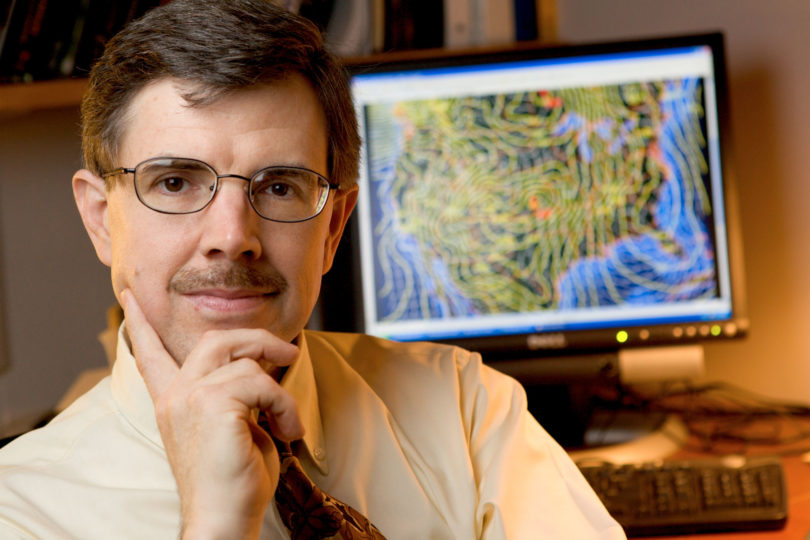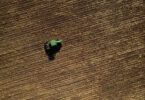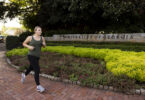Athens, Ga. – A team of science and educational experts led by a University of Georgia psychologist and atmospheric scientist will teach a group of Bibb County school teachers what they should teach their students about the science of weather and how to respond safely when it threatens.
About 30 K-8 teachers are expected to attend the Weather Science and Safety Workshop May 23-27 in Macon, according to project leader Alan Stewart, an associate professor in counseling psychology in UGA’s College of Education. UGA colleague John Knox, an assistant professor in geography, is a co-investigator in the project, which is funded by a two-year, $149,000 National Science Foundation grant.
The workshop comes in the aftermath of a series of recent tornadoes that have ripped across the Southeast, causing hundreds of deaths and millions of dollars in damage during the last several weeks.
“Our goal is to provide professional development to teachers about both the science and safety practices concerning hazards we routinely face in Georgia: lightning, tornadoes, hurricanes and floods,” said Stewart. “As part of this effort, the workshop uses the Masters of Disaster (K-8) curriculum that has been developed by the American Red Cross as a curricular resource that meets state and national performance standards in multiple curriculum areas.”
The workshop team consists of meteorologists Knox and his doctoral student, Aneela Qureshi; a science educator, Thomas Koballa, dean of the College of Education at Georgia Southern University and former professor and head of the department of science education at UGA; and Pat Schneider of Teachable Tech, Inc. of Atlanta, whose company helped to develop the Masters of Disaster curriculum.
The workshop will introduce teachers to the curriculum and train them in its use. Teachers will learn how to deliver the curriculum to their classes during the following school year and share the curriculum with their colleagues.
The Masters of Disaster curriculum is centered on a series of ready-to-go lesson plans that help schools educate youth about important disaster safety and preparedness information. The curriculum contains lessons, activities and demonstrations on disaster-related topics that schools can incorporate into daily or thematic programming. The curriculum is non-sequential, allowing organizers to choose the lesson plans that best fit into their programming. The curriculum materials meet national educational standards and are specifically tailored for lower elementary (K-2), upper elementary (3-5) and middle school (6-8) classes.
“The education on essential preparedness skills that students receive through the program will carry them through life,” said Stewart. “Lessons are enjoyable and interactive, ensuring that children are having fun while internalizing important life skills though building capabilities in mathematics, language arts, social studies and science.”
The curriculum also can help reduce children’s anxiety about unknown aspects of disasters and tragic events. They will gain confidence to deal successfully with life’s unexpected turns, said Stewart.
The Masters of Disasterseries has almost 200 lesson plans in it, including such topics as:
Preparing for any disaster;
Coping with tough issues like terrorism, war and pandemic flu;
Recovering and rebuilding from any disaster;
Preventing injuries that happen at home;
Earthquakes;
Fire prevention and safety;
Floods;
Hurricanes;
Lightning;
Tornadoes; and,
Wildland fires.
“Another important goal of the project is to evaluate the extent to which providing the workshop and disseminating the Masters of Disaster curriculum materials to teachers during the workshop leads to an increase in the weather science and safety knowledge of students of those teachers who participate in the workshop,” said Stewart. “We also will evaluate the extent to which the safety messages about weather that students learn are taken home and are either known, or hopefully implemented by the students’ families.”
The grant will allow the UGA researchers to do two more workshops in the summer of 2012. One will be held in South Georgia and another in Georgia’s southern coastal region.
For more information on UGA’s College of Education, see http://www.coe.uga.edu/.








